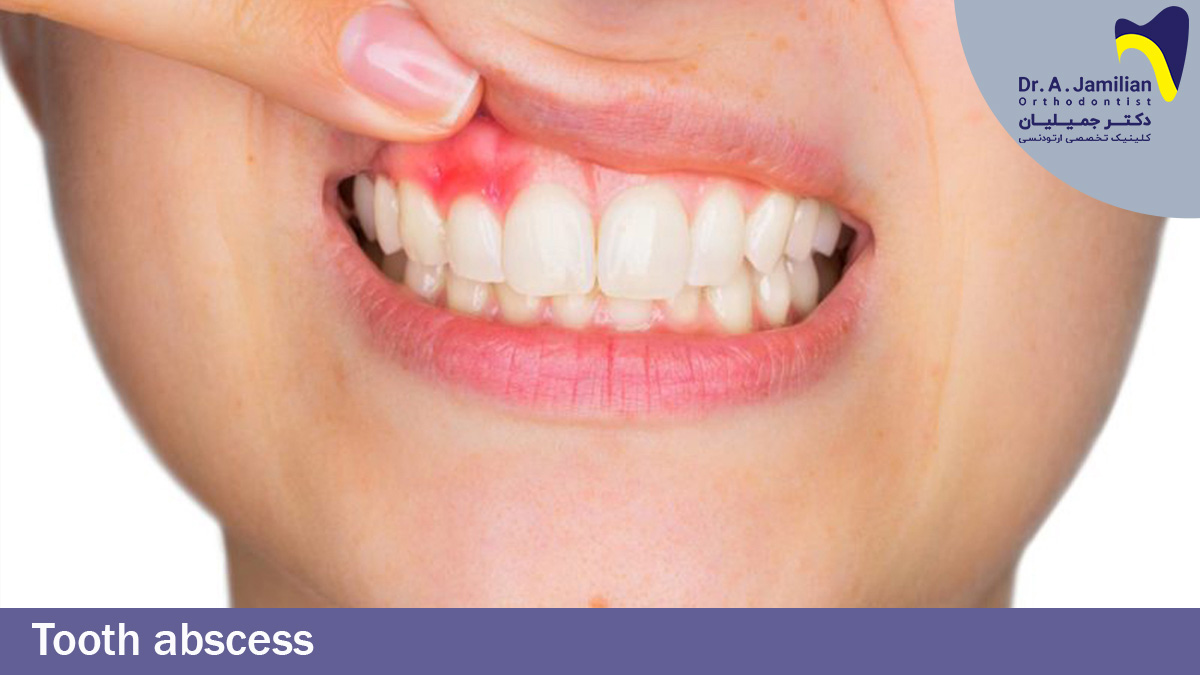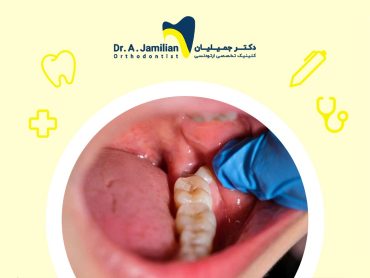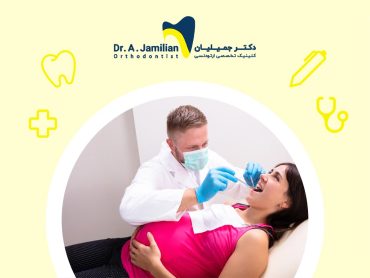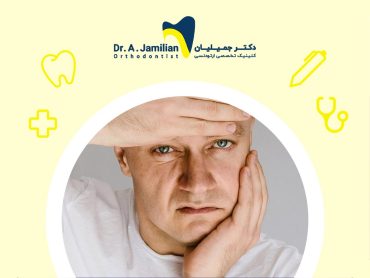Tooth Abscess is a common dental problem that occurs sometime during a person’s lifespan. It is an infectious collection of pus that forms around damaged tooth root canals. The infective mass is formed when rotten teeth are not treated on time, thus, the infection would reach the root canal and bring about the tooth abscess.
This dental problem is treated by orthodontists, i.e. the specialists whose specialty is treating root canal problems and diseases. The infection may spread to the patient’s face, as a whole, neck and finally the whole body. This can happen, if patients fail to visit their dentists and to start their treatment process on time.
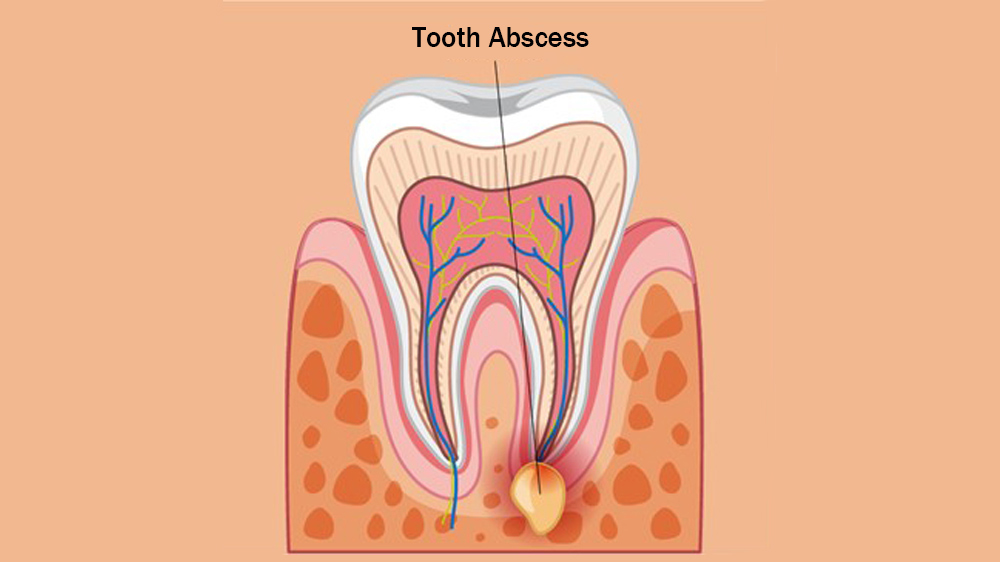
What Are The Main Causes Of Tooth Abscess?
Despite its external section, it is rough and impenetrable; because of nervous veins, the internal tissue of the tooth it’s very soft and vulnerable. So, if the rough and resistant external surface of the tooth is rotten and destroyed, then the infection can spread to the soft internal tissues of the tooth. For the same reason, the infection inside a tooth can lead to formation of an infective tooth abscess beneath and around the root canal, if the rotten teeth are not treated properly and on time.
Gum diseases or periodontal diseases, deep dental decays and tooth cracks and fractures are among the most common causes of the tooth abscess. Each of these factors can facilitate the infection spread into the internal part of the tooth and eventually result in abscess formation in the root canal and around the tooth. It is necessary to remember that an abscess would form in any spot at the gums, but each abscess is developed only because of infection in a tooth.
Types of Tooth Abscesses
Generally there are three types of dental abscesses, each of which attack different parts of the tissue.
1- Gingival Abscess
A common type of abscesses is Gingival Abscess which could be developed in any age. This type of abscess is developed somewhere between the tooth and the gum. For instance, when an external thing like a tooth stick scratches the tissue or when some food is stuck between the tooth and the gum, gingival abscess would be developed.
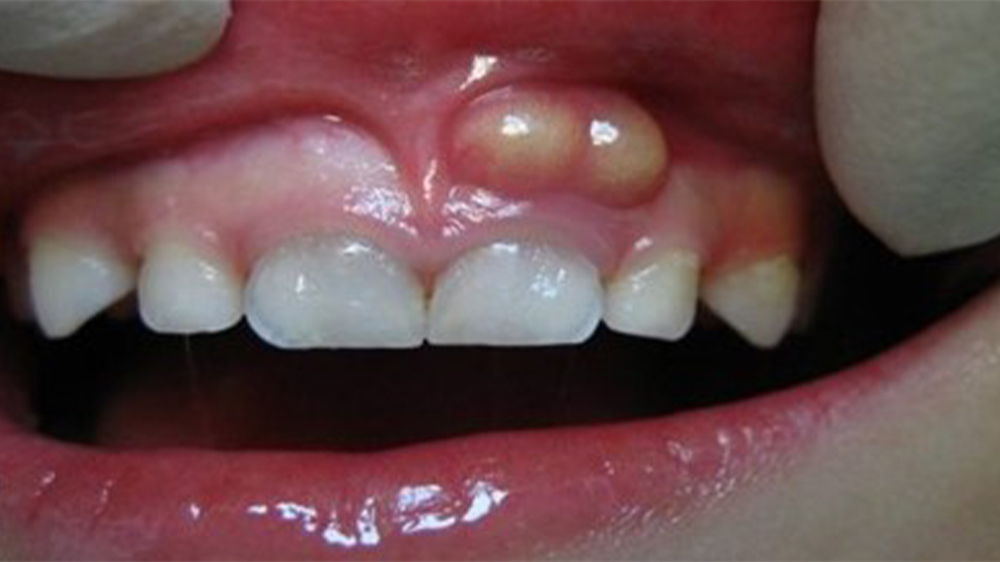
2- Periodontal Abscess
Periodontal abscess is a type of cavity or pocket-like structure full of infection forming inside the gum tissue. This structure would appear as a shiny and smooth protrusion stuck out of the gum, which is sensitive to touching. The teeth around the abscess would become sensitive or loosened. The periodontal abscess is formed as the result of accumulation of bacteria inside the periodontal pocket and it is more prevalent in adults rather than children. This problem is more prevalent in people who suffer from gum diseases and need quick and long-term treatment. This type of abscess usually spreads into the bones around the damaged tooth and they can pass the jaw bones.
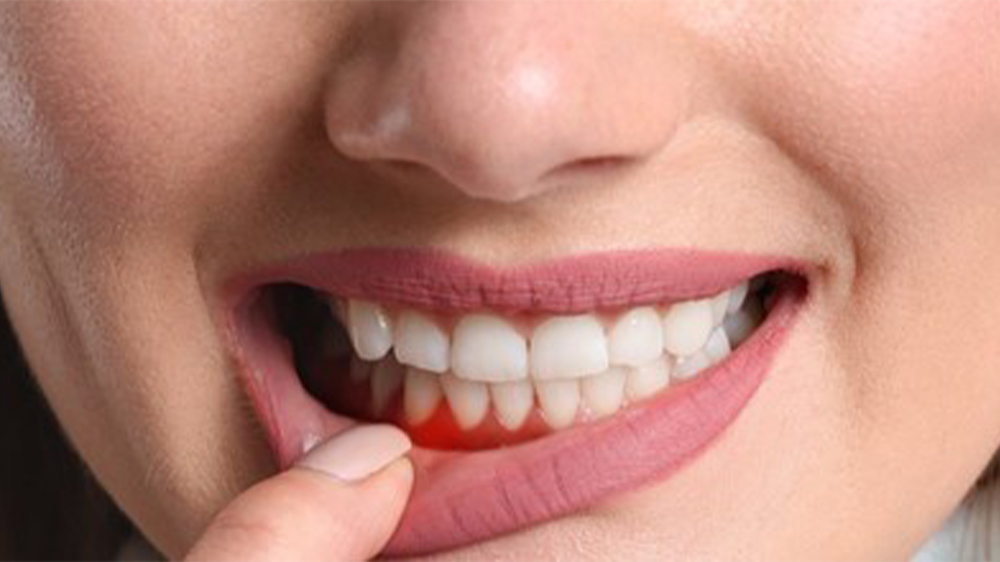
3- Periapical Abscess
Another very prevalent type of dental abscess is periapical abscess caused by tooth decay or dental fracture. The periapical abscess attacks the end of the canal root of the rotten tooth, in a way that bacteria would infiltrate the dental pulp via the dental decay or cracks and would start to stimulate inflammation of the pulp tissues and then would develop an abscess at the end of the canal root.
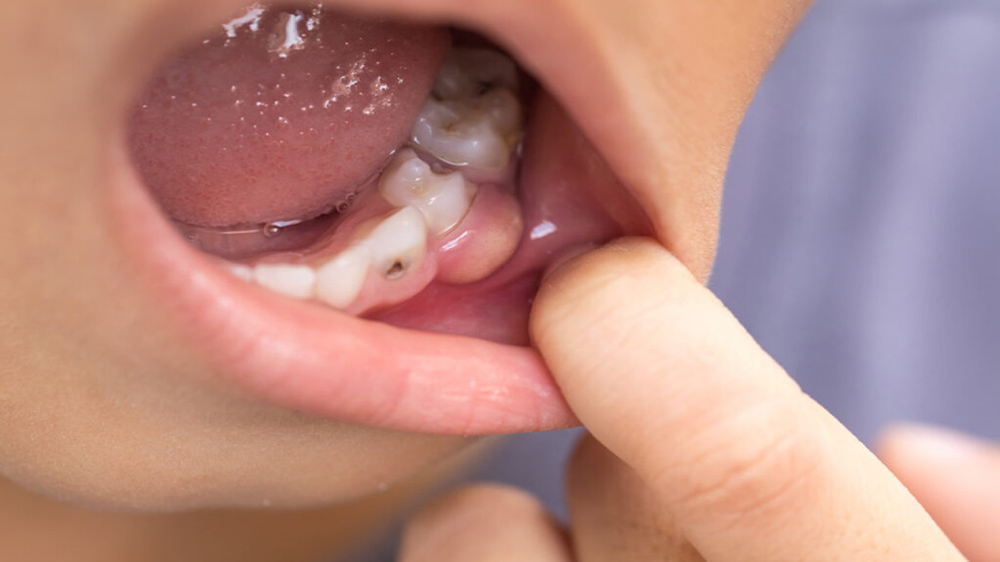
What Are the Symptoms of the Tooth Abscess?
One of the clearest symptoms of the tooth abscess is pain and inflammation of the gum. It is a very severe and throbbing pain. The pain exacerbates over time and sometimes it extends into the bones of the jaw, neck and ear. Of other symptoms of the dental abscess the following can be pointed out:
- Swelling and redness of the gums
- Swelling in the lymphatic glands
- Making problems in swallowing process
- Feeling pain while breathing
- Feeling pain across teeth, gums and jaws
- Feeling unpleasant taste and smell in the mouth
- Tooth sensitivity to heat and cold
- Having problem for opening mouth
- Fever in some cases
Often, there are no apparent symptoms to diagnose the dental abscess, however, when you visit a dentist, they can diagnose the abscess with help of radiological images.
What We Need To Do, When We Find An Abscess In Our Mouth?
The absolute most important thing you need to do is visit a dentistry office. Dentists consider one of standard treatment techniques after examining the abscess status, and the extent to which it has infected the tissues. However, if by any chance you have fever, facial swelling and you have no access to a dentist, you need to refer to the emergency service centers. Cases like difficulty in breathing or swallowing may be symptoms of an advanced abscess in which jaws, throat and even the neck are involved. You need to share these cases with your dentist or emergency caregiver.
Abscess of the Denervated Tooth
Denervation or Endodontic therapy is a way dentists often use to improve the patient’s dental condition through which all of the damaged dental nerves, the inflamed tissue and the infection inside the root canals are discharged. However, under certain conditions, a tooth which had been denervated already would develop abscess. For instance, sometimes we have a denervated tooth which is susceptible to the dental abscess and it is more prevalent in certain cases such as incomplete endodontic therapy, formation of tint pores across the canal root, dental cracks, etc.
Abscess of the Veneered Teeth
In most dentistry treatment methods, the teeth need to be veneered. A proper tooth veneer is so that it should cover all spots and to prevent infiltration of both bacteria and the infectious elements. Nevertheless, certain incidents like cracked veneers or the rotten tooth under the veneer are not uncommon and they would lead to abscess formation. In such cases, you need to visit a dentist as soon as possible to treat the abscess exactly on time.
Does Dental Abscess Go Away Automatically and Without a Treatment?
You need to keep it in your mind that the dental abscess is a problem which doesn’t go away without a professional treatment under supervision of a dentist. In many cases the abscess is ripped and as a result the patient may feel less pain! In this time, they may think that their abscess has been treated automatically, though the dentistry treatment is unavoidable in such cases!
One key point about this problem is that if your defensive and immune system is weak, you cannot leave abscess without treatment! Otherwise, the dental abscess would metastasize the infection all over your body and would infect most parts of it. Head, throat, neck and space between eyes are among the most susceptible parts of the body which would be threatened by the infection caused by abscess.
Children’s Tooth Abscess
There is no relationship between abscess and age, thus, sadly it can be seen in children, as well. In the case of observing abscess in your kid’s mouth, you need to visit a dentist ASAP and you should avoid pushing it by your hand or something. This is due because it would be very risky for your kid. Following visiting a dentist let your kid rest and relax until the full recovery and help them to keep the treated spot clean.
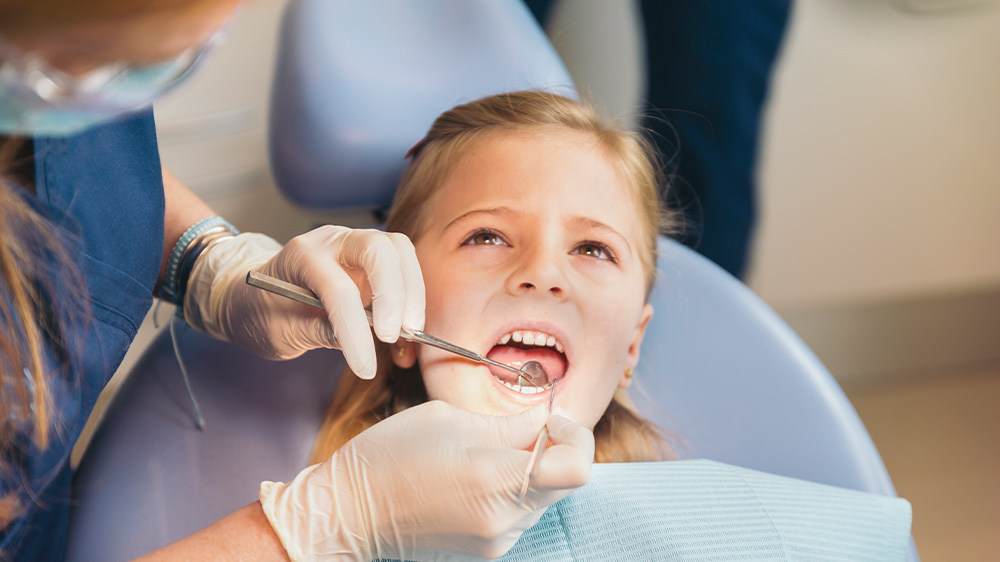
Is Dental Abscess Dangerous During Pregnancy?
The oral infection causing dental abscess not only is dangerous for you it would affect the fetus health, as well. The impact would affect your kid either in the form of pain and stress or it would cause fever and inflammation in your body and subsequently negatively affect the health and growth of the fetus. Pay attention that dental abscess during pregnancy would bring about many risks for the fetus heath, so do not underestimate it!
How Can I Prevent the Tooth Abscess?
Following oral and dental hygiene instructions and regular use of toothbrush, mouthwash and tooth gloss are among the best ways to avoid tooth abscesses. The regular and periodic dentistry examinations and on-time treatment of the rotten teeth are among other ways used to avoid tooth abscess. So, if the rotten tooth is not treated on time, you have to expect development of periapical abscess. A controlled consumption of sugary products, confectionery and drinks, causing cracked and rotten teeth is very useful in controlling the health of teeth and preventing dental abscesses.
Treatment of Tooth Abscess
Antibiotics can be useful in suppressing infection, if it is not very serious. Also the damaged tooth needs denervation therapy. If the tooth is completely infected and there is no chance to keep the tooth, the dentist has no choice but to extract the infected tooth. Likewise, infection drainage is necessary in severe conditions.
Drainage of Tooth Abscess
Another aggressive way to treat the tooth abscess is using a sharp razor to rip the abscess superficial layer in order to drain its internal infectious substances. This is called drainage and needs to be done by completely sterilized devices in a sterilized place by an experienced dentist. Please never try to do it by yourself at home, because it may lead to worse consequences!
Tooth Abscess FAQ
1-Should a dental abscess be treated as an emergency?
A tooth abscess is a risky dental condition which would result in dental infection. It is an emergency condition, because the infection would spread into the jaw, its peripheral tissue and other parts of the body.
2-Is it necessary to use antibiotics for treating abscess?
Usually antibiotics are used to treat tooth abscess. However, it is necessary to remember that antibiotics only are able to suppress the infection, but other measures including root canal therapy are necessary to reach a full recovery. In cases when the infection is very extensive, abscess drainage along with antibiotic therapy by the specialist dentist would be very necessary.
3-Is it possible to extract the abscessed tooth?
To answer this question, a dentist needs to examine the abscessed tooth very carefully. So, the best way to suppress the dental infection is denervation. In cases in which keeping the tooth is impossible, the treatment starts with taking antibiotics in order to suppress the infection and then the tooth is extracted.
